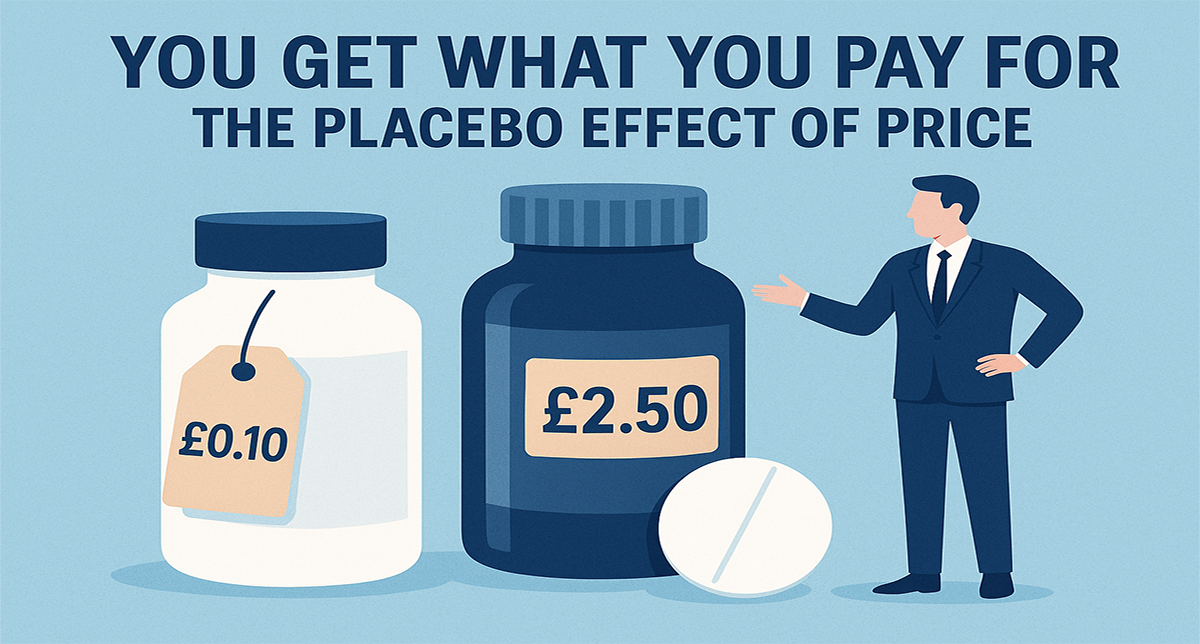Why hyperbolic discounting happens
In economics, hyperbolic discounting is a time-inconsistent model of delay discounting. It is one of the cornerstones of behavioural economics.
Delay discounting is the decline in the present value of a reward with delay to its receipt.
The notion of discounting future rewards relative to immediate pleasure has a long history. People generally want rewards sooner rather than later. Thus, options that delay a reward appear less attractive and people discount them. [source]
But why does this happen? Why does the gratification value we place on rewards decrease with time?
We like certainty
Decision makers are usually risk averse, meaning we're often willing to accept a small but certain reward over a larger, potentially uncertain reward.
The interesting part is that nothing stipulates that the delayed reward is uncertain, but because we can’t see and evaluate the future, we tend to associate waiting with the opportunity for barriers to arise, thus rendering the reward irretrievable.
Therefore, we feel more secure when the rewards are already in our hands.
Waiting is hard
If there's something you really want, the draw and temptation is sometimes difficult to withstand. For many, it requires a level of self-discipline that they just don't have.
A similar phenomenon can be see in the world of health and fitness. We're all aware that committing to a long-term healthy lifestyle that includes sensible food choices and regular exercise will help us drop those extra pounds (and keep them off) but we fail to commit to long-term changes, opting instead for the 'quick-fix' diets, only to find ourselves in the same place a year later!
What is an example of hyperbolic discounting?
Consider this hypothetical scenario where you (very luckily) win a very large sum of money on a lottery ticket. That large sum of money is £2 million.
Upon claiming your prize claim his prize, you're presented with 2 options; take £2 million today as a one-off payment or receive £250,000 every year for the rest of your life.
Logic tells you that the annual income much be a much better option, long-term. At the age of 40, you'd only need to live another 8 years for this to be the better financial decision. But, against all logic, you choose to have a 7-figure sum deposited in your bank account today - after all, you've had your eye set on a new house, sports car and a lavish holiday since your numbers came in! You undoubtedly opt for the version where you get to enjoy the reward at present.
Despite a clear better option, hyperbolic discounting swung you to make the impatient decision of taking all your money at once, even though in the long run you could have made triple that!
What are the effects of hyperbolic discounting?
Hyperbolic discounting can result in poor decision-making. This cognitive bias creates impulsivity and a desire for immediate gratification. Decisions that prioritise short-term gratification often neglect and detract from our long-term well-being. [source]
Let's use the example of drug-taking: there is a quick 'high' that is valued over future health and long-term implications.
Hyperbolic discounting research
Researchers often run the following experiment to prove hyperbolic discounting: imagine you’re given 2 choices; get a £100 today or £120 in a week. Most participants choose £100 today.
But when the same question is asked with the same 1-week interval, but a year in the future, participants largely choose the bigger reward.
How does hyperbolic discounting affect purchase behaviour?
This exact 'impatient' mentality applies to your shoppers and consumers, too. Consider the following tactics to pander to this preference:
1. Immediate gratification
Simply put, shoppers prefer immediate rewards over delayed gratification. If you run any sort of free gift or instant reward scheme for your brand, shout it from the rooftops - the hyperbolic discounting theory will have consumers falling at your knees.
2. Long-term schemes with upfront incentives
You can run schemes where shoppers are rewarded over time (think coffee cup stamps and a free cup after so many) but these work better if you give shoppers a couple of free stamps to start them off. They are proven to be more likely to continue the journey to the end of the process.
3. Fine-tune promotions to your advantage
Recognise that you can give away less in terms of added value if shoppers can ‘cash in’ now and that longer-term offers may need to be bigger, but not every shopper will get to the gold at the end of the rainbow.
Summary
Acknowledging that hyperbolic discounting exists and evaluating trade-offs between now and the future will help you do the right thing for your brand.
Hyperbolic discounting is no.22 in my series of 36 cognitive bias insights. Check out 23: The IKEA Effect.






